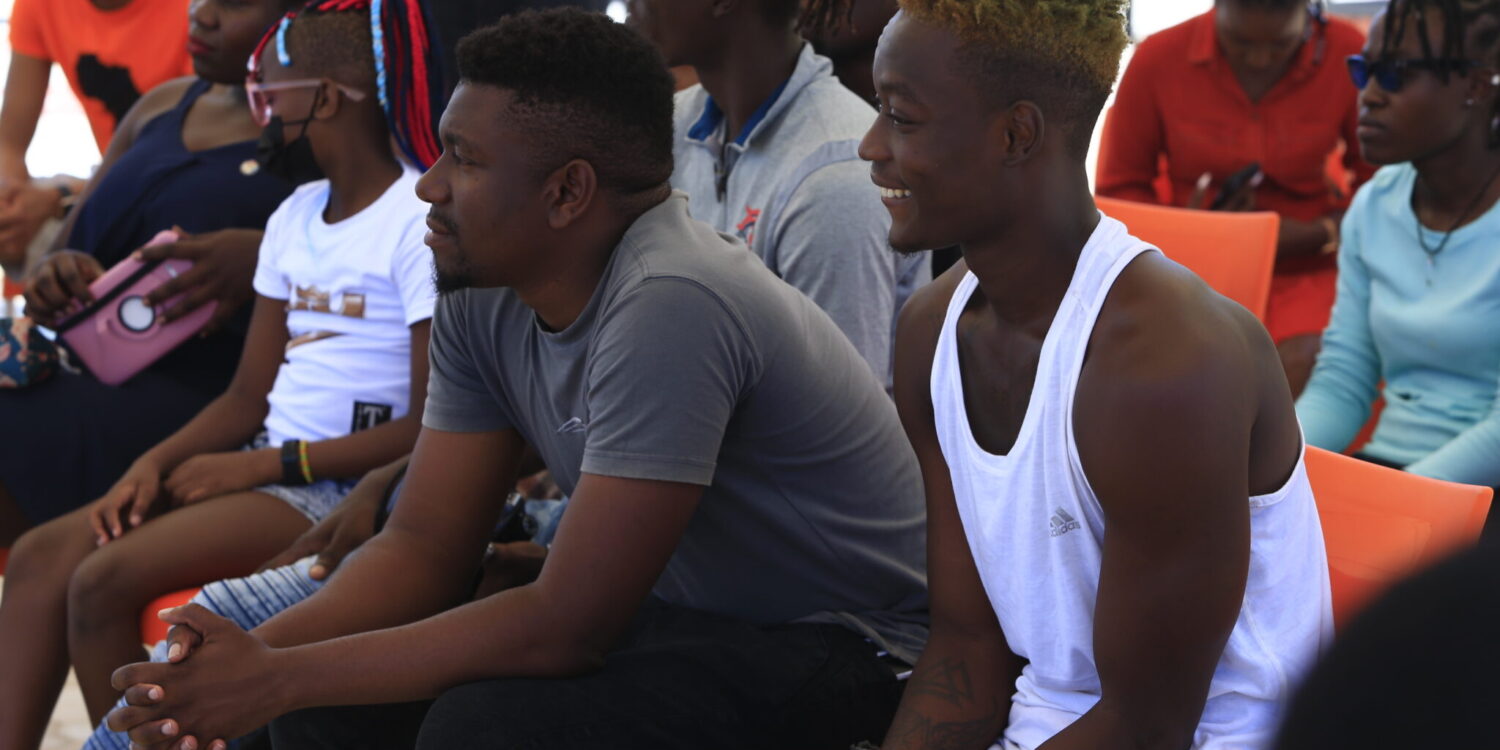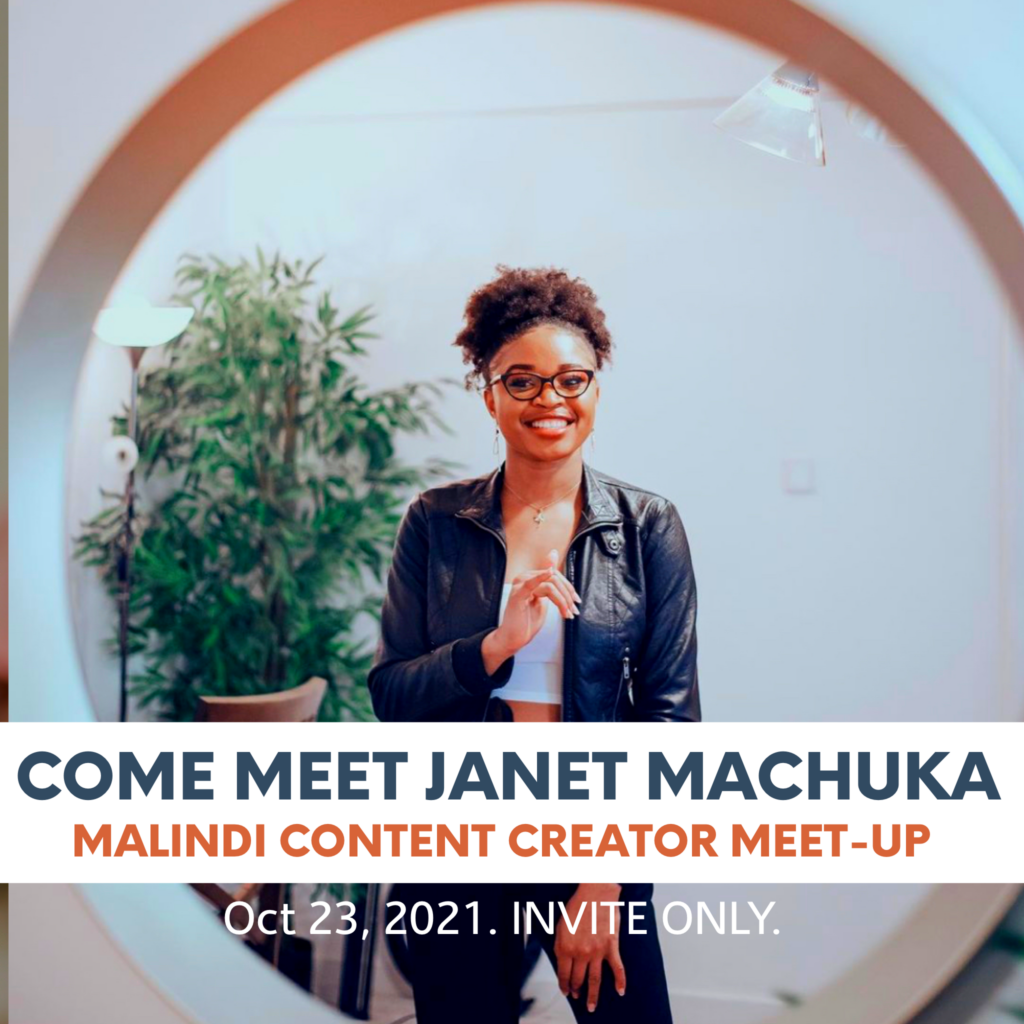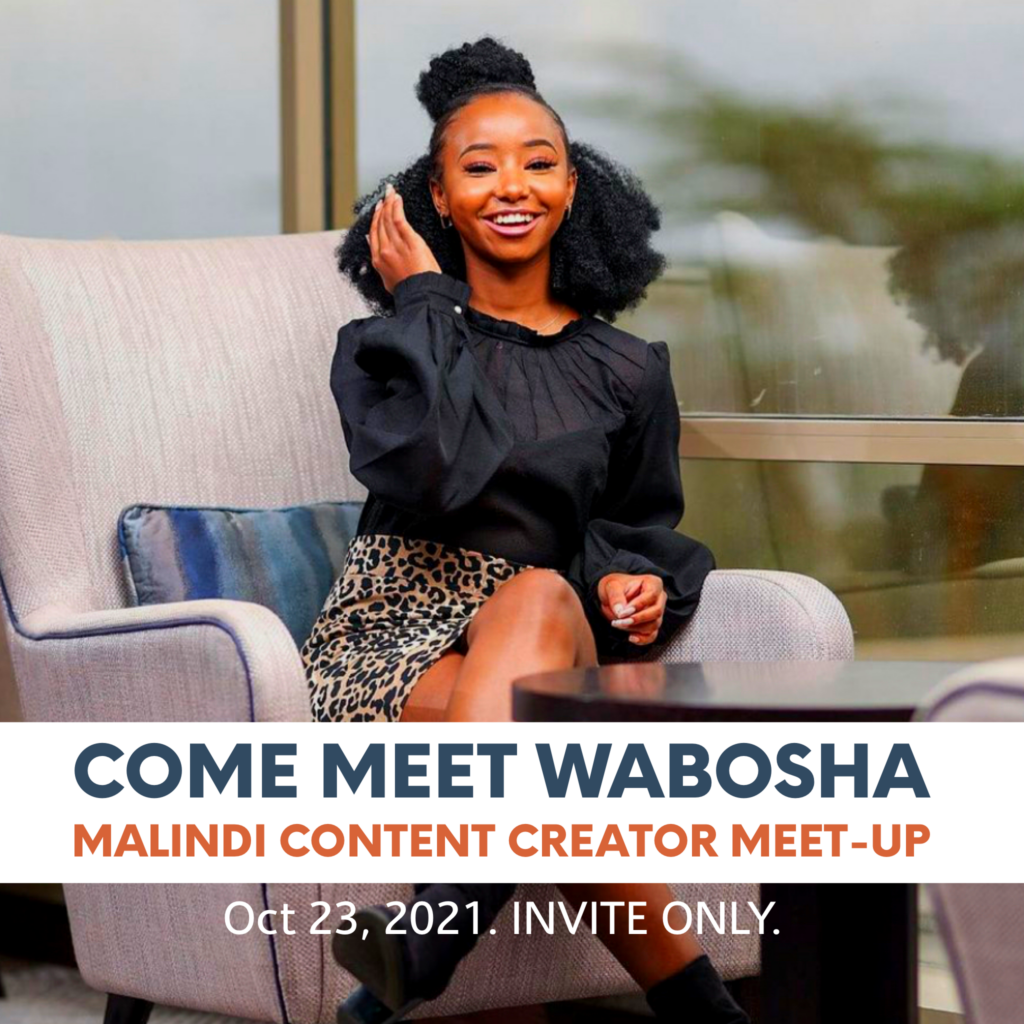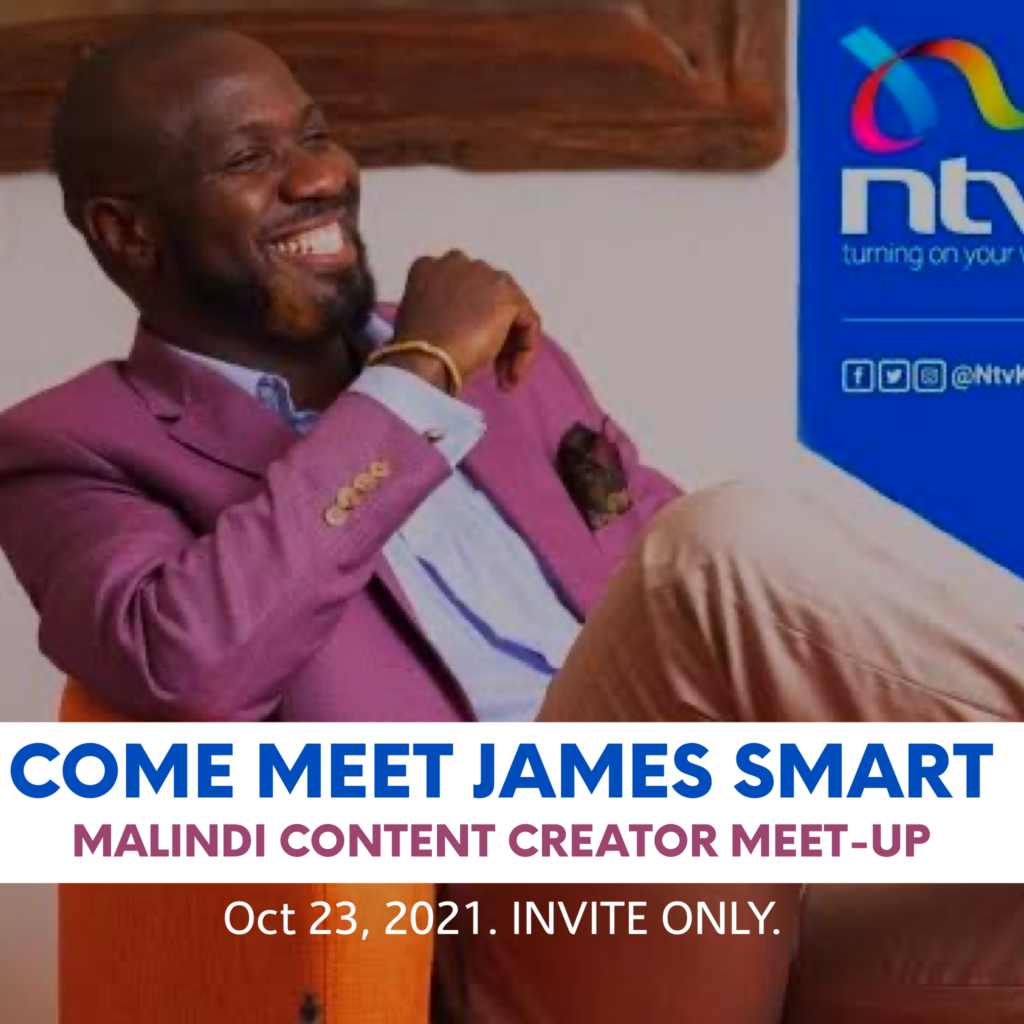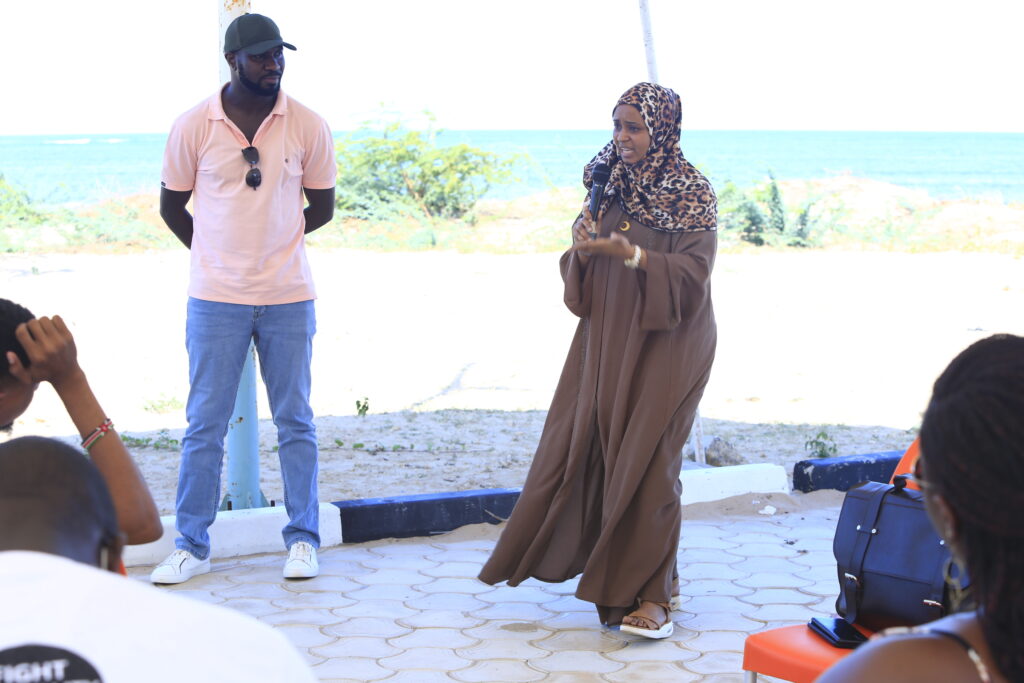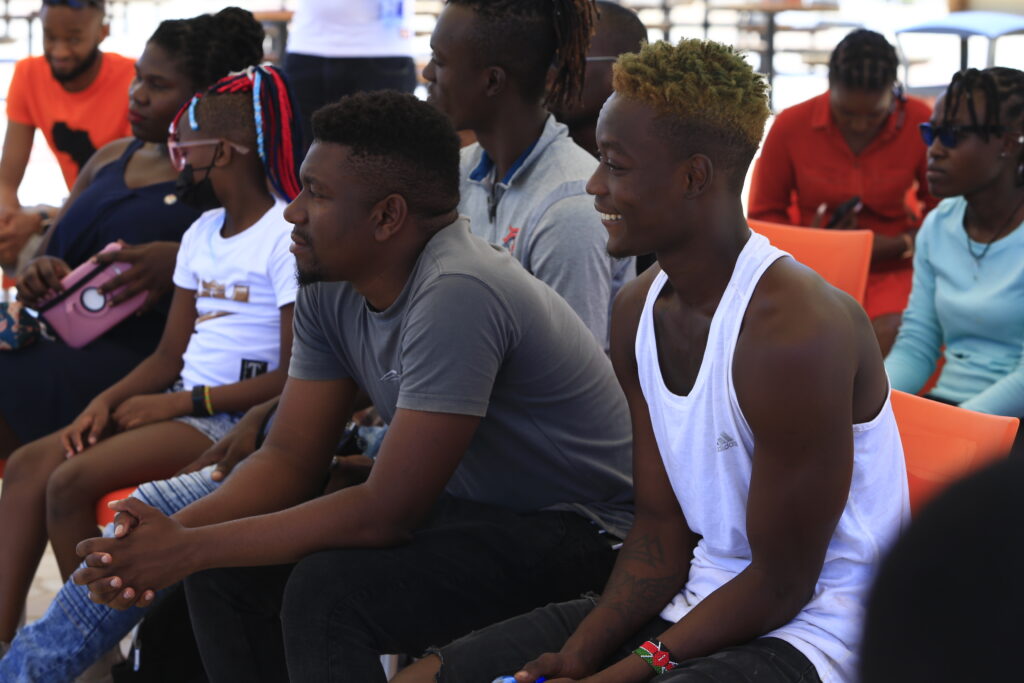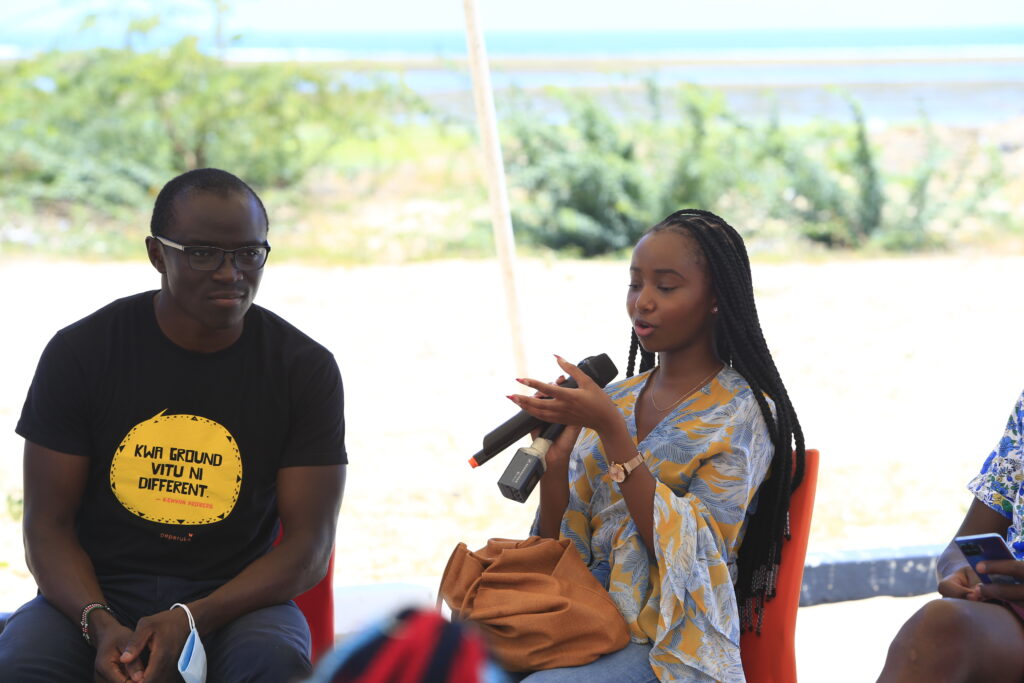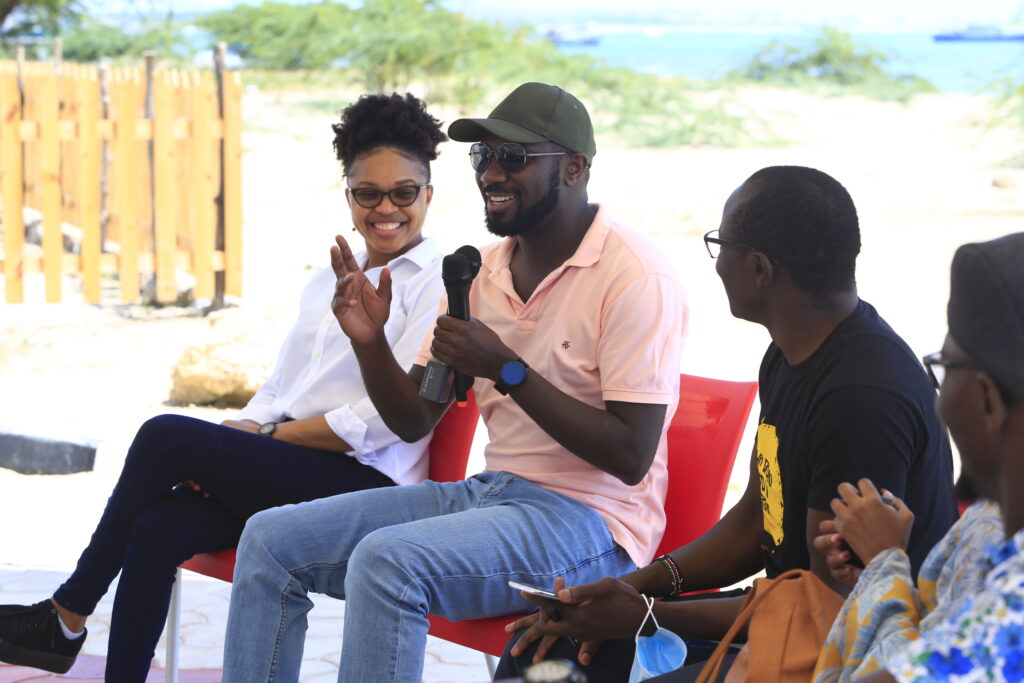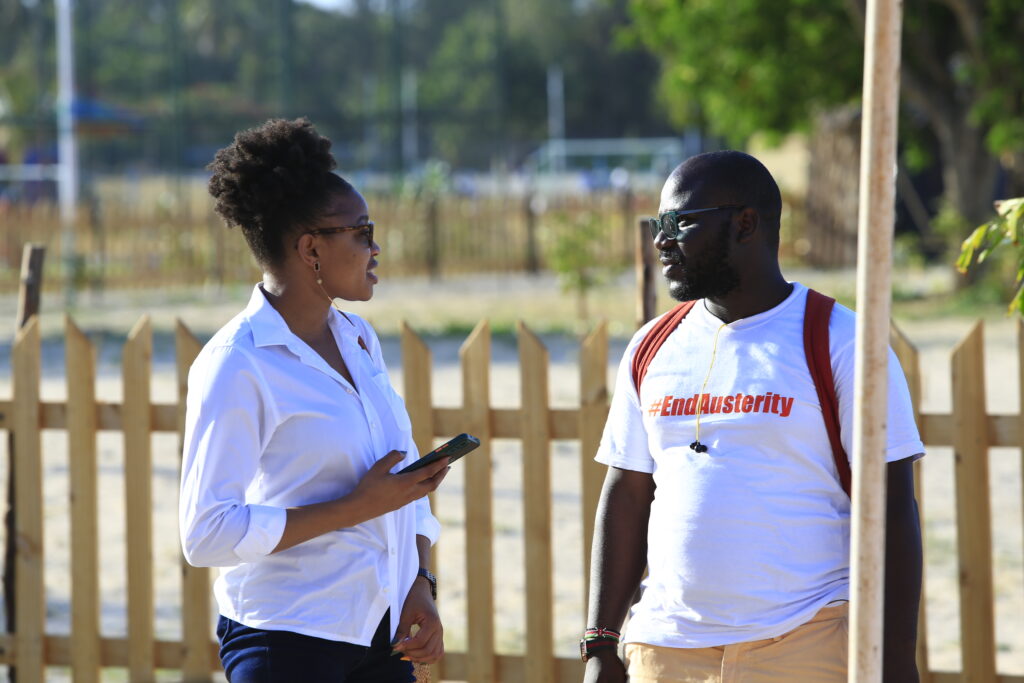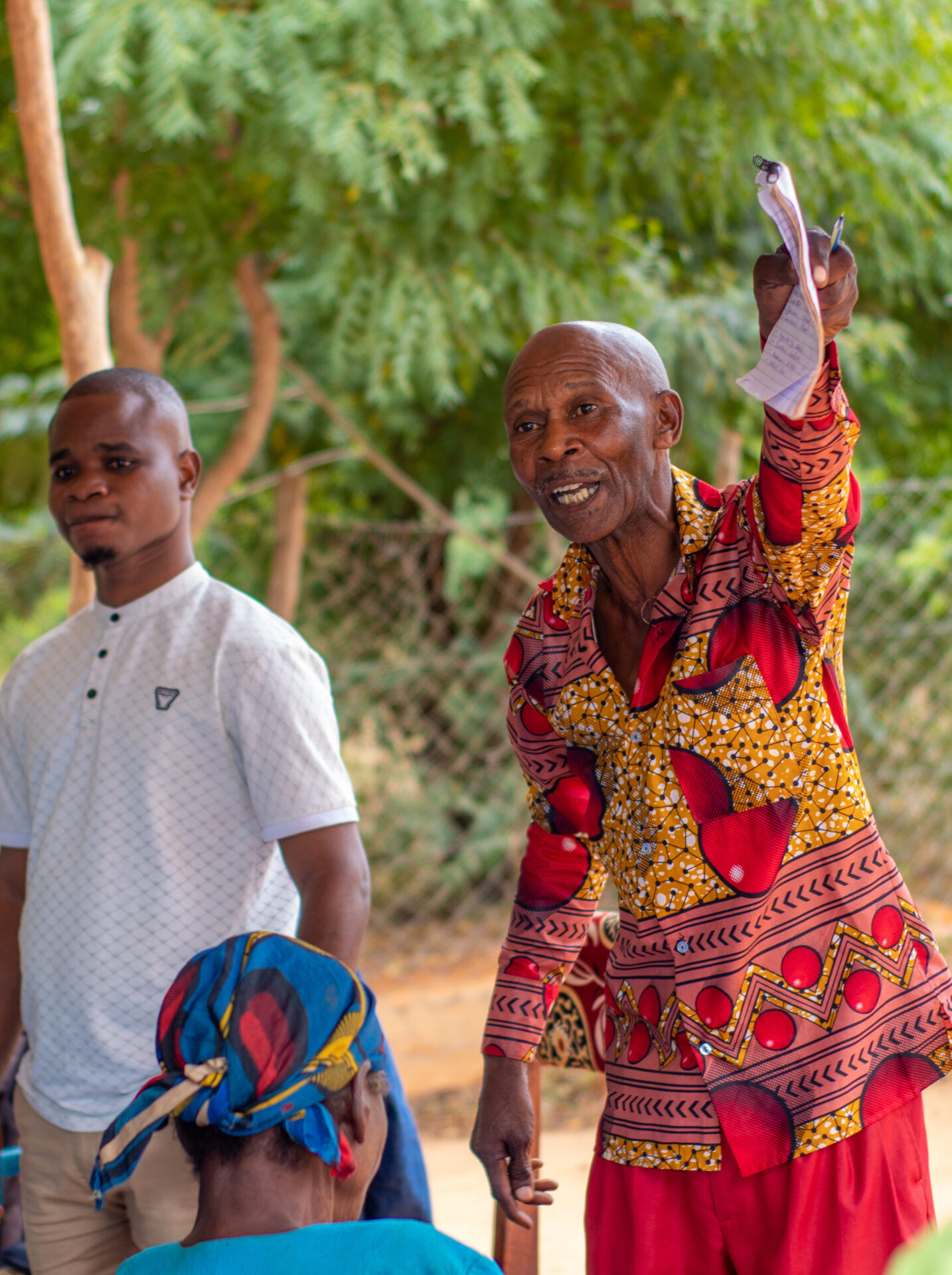Mwanajuma Hamadi is a shy 24-year-old who lives in Shela, the old town of Malindi. On Saturday, October 23 2021, she was effusive in her words. “Sikuamini kwamba mimi pia naweza kuwa repota hata kama sikumaliza shule. Wajua mtu waona kama ambae maisha yasha kwisha kwa hiyo unang’angana tu.” (I could not have imagined that I could be a reporter even if I did not finish school. You know one feels like life is over and you are just destined to struggle.)
Mwanajuma was one of the 30 young people who had gathered at the new Malindi Park, which shares a name with our annual event, Buntwani. The youth had gathered to meet and spend a few hours with accomplished content creators – especially in the digital space – to learn how they could leverage their smartphones and the basic technology that they have access to build a career in content creation that could earn them money.
Maxine Wabosha, an avid Youtuber and social media influencer, Janet Machuka, social media strategist and corporate influencer and James Smart, Nation Media Group’s head of Podcasting and media personality broke down how compelling content is created as a means to make sure that people can grow a following and therefore begin to earn on Youtube. They were joined by Mobile Journalism guru, Emmanuel Yegon, the founder of Mobile Journalism Africa (MoJo), who walked them through how they could use their phones to build a career in journalism.
Speaking in Kiswahili, the lingua franca at Kenya’s coast, the facilitators encouraged the youth to realise that they could tell their communities’ stories better than anyone else can. James called on them to have the confidence to try doing something worthwhile, noting that he grew up in the Korogocho slums and that if they took advantage of the opportunities presented by the technology they would be able to develop a worthwhile career.
Collaboration
The weekend event was organised as a collaboration between Open Institute, Thellesi Trust and Baraza Media Lab as an effort to try and make sure that we decentralise our efforts to reach youth that ordinarily do not gain easy access to tools and resources that could better their lives. If by working together we could facilitate disenfranchised youth to gain technical skills, life skills, financial and civic literacy, we believe we will have gone some of the way towards onboarding these citizens into active citizens who are fully involved and participating in making decisions about their lives. Given that the youth in Kenya are quite avid users of the internet and mobile phones, the event sought to build on this by bringing together seasoned and aspiring content creators from Nairobi and Malindi to meet, talk and learn from each other.
"Mimi nilipoendea ID niliitishwa birth certificate ambayo pia Sina" Identification cards are lacking among the Malindi youth, this locks them out from #publicparticipation among other important responsibilities of citizens.#contentcreatorschat #lovemalindi
— Open Institute (@Open_Institute) October 23, 2021
Tell your own story
The power of telling one’s own story is a the core of the collaboration, and the initiative Kwa Ground is a community journalism movement whose premise is built on communities telling their own stories in their own words, and thus, in a way, shifting the power back to them. If communities can speak of their lived experience – their successes and unique problems that they need to tackle – we believe that the ownership fostered from this can bring about lasting change.
I don’t think there is anything more powerful than a person having the ability to tell their own story
James Smart, Head of Podcasting, Nation Media Group
Our premise is that citizens lead the move towards achieving development, thus we work to make sure they are involved and have access to all the resources that they need to drive this. For the Malindi seasoned and aspiring content creators, the power of the mobile phone to tell stories became a way to leverage how they can shed light to their localities using their own creativity and storytelling skills, how they can collaborate with each other and use their own talents to show the world who they are, and even make a living out of content creation.
Janet Machuka’s simplified the whole process, explaining that you do not need to be an expert at video to tell a story, and that you do not need to be like everyone else. She encouraged the young people to speak in their own language: to share dance sporting or comedy skits online if that is what they are good at, and to collaborate with their friends to put out content. Reiterating this statement, Wabosha Maxine explained how she started off using just her phone before she ever acquired camera equipment, encouraging the youth not to be afraid to start. Her simple beginnings saw her engage with her audience and grow her following to over 219,000 subscribers on YouTube. Emmanuel Yegon uses a simple smartphone to tell stories, a brand of storytelling he calls mobile journalism, and he even went further to demonstrate how easy it is to shoot a video and post it online, referencing influencers such as Flaqo and Azziad Nasenya who rose to fame from simple beginnings to became overnight successes by using the power of storytelling.
We are encouraged by this promising start and the enthusiasm with which the youth in Malindi received the event. We hope to continue ideating and co-creating similar forums that will encourage more engagement with the youth, even in other parts of the country.

